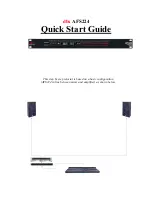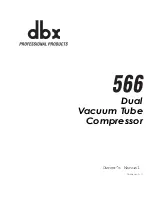
Defrosting
The cabinet defrosts automatically with pre-set intervals. If the door to the
cabinet is opened or the contents of the cabinet is changed frequently it
may become necessary to defrost the cabinet manually.
Pressing this key continuously for more than 3 seconds will start a
manual defrosting and then return to normal operation.
Defrosted water runs to a container placed in the compressor compartment
and evaporates.
Maintenance and cleaning
Switch the cooler off at the socket.
The cabinet must be periodically cleaned. Clean the external and internal
surfaces of the cabinet with a light soap solution and subsequently wipe
dry. External surfaces can be maintained using steel oil.
Do NOT use cleansers containing chlorine or other harsh cleansers, as these
can damage the stainless steel surfaces and the internal cooling system.
Clean the condenser and the compressor compartment using a vacuum
cleaner and a stiff brush.
Do NOT hose the compressor compartment with water as this can cause
short circuits and damage on the electrical parts.
Service
The cooling system is a hermetically sealed system and does not require
supervision, only cleaning. If the cabinet fails to cool, check if the reason is
a power cut.
If you cannot locate the reason to the failure of the cabinet, please contact
your supplier. Please inform model and serial number of the cabinet. You
can find this information on the rating label which is placed inside the
cabinet in the top right hand side.
Disposal
Disposal of the cabinet must take place in an environmentally correct
way. Please note existing regulation on disposal. There may be special
requirements and conditions which must be observed.
14
Thermostat
The thermostat is placed in the control panel, see fig. 2.0.
Fig. 2.0
The thermostat has been pre-set and in most cases it is not necessary to adjust the settings.
When turning on the cabinet the display will show the current temperature in the cabinet.
Display set temperature:
Press this key and the display will show the set temperature. Press the key again to return to
normal reading
Set new temperature:
Press this key continuously for more than 3 seconds and the display shows the set
temperature.
Press this key to increase the set temperature.
Press this key to lower the set temperature.
Press this key to save the new settings. The display will flash with the new value and will
then return to normal reading.
Alarm codes:
‘P1’
Flashing in the display: indicates that the cabinet sensor is defective.
The cabinet will strive to keep the set temperature until it has been repaired.
‘P2’
Flashing in the display: indicates that the evaporator sensor is defective.
This does not influence the operation of the cabinet, but should be repaired as soon as
possible.
Defrosting
The cabinet defrosts automatically with pre-set intervals. If the door to the cabinet is opened or the
contents of the cabinet is changed frequently it may become necessary to defrost the cabinet
manually.
Pressing this key continuously for more than 3 seconds will start a manual defrosting and
then return to normal operation.
Defrosted water runs to a container placed in the compressor compartment and evaporates.
15
Maintenance and cleaning
Switch the cooler off at the socket.
The cabinet must be periodically cleaned. Clean the external and internal surfaces of the cabinet
with a light soap solution and subsequently wipe dry. External surfaces can be maintained using
steel oil.
Do NOT use cleansers containing chlorine or other harsh cleansers, as these can damage the
stainless steel surfaces and the internal cooling system.
Clean the condenser and the compressor compartment using a vacuum cleaner and a stiff brush.
Do NOT hose the compressor compartment with water as this can cause short circuits and damage
on the electrical parts.
Service
The cooling system is a hermetically sealed system and does not require supervision, only cleaning.
If the cabinet fails to cool, check if the reason is a power cut.
If you cannot locate the reason to the failure of the cabinet, please contact your supplier. Please
inform model and serial number of the cabinet. You can find this information on the rating label
which is placed inside the cabinet in the top right hand side.
Disposal
Disposal of the cabinet must take place in an environmentally correct way. Please note existing
regulation on disposal. There may be special requirements and conditions which must be observed.
6
Maintenance and cleaning
Switch the cooler off at the socket.
The cabinet must be periodically cleaned. Clean the external and internal surfaces
of the cabinet with a light soap solution and subsequently wipe dry. External
surfaces can be maintained using steel oil.
Do NOT use cleansers containing chlorine or other harsh cleansers, as these can
damage the stainless steel surfaces and the internal cooling system.
Clean the condenser and the compressor compartment using a vacuum cleaner and
a stiff brush.
Do NOT hose the compressor compartment with water as this can cause short
circuits and damage on the electrical parts.
Service
The cooling system is a hermetically sealed system and does not require
supervision, only cleaning.
If the cabinet fails to cool, check if the reason is a power cut.
If you cannot locate the reason to the failure of the cabinet, please contact your
supplier. Please inform model and serial number of the cabinet. You can find this
information on the rating label which is placed inside the cabinet in the top right
hand side.
Disposal
Disposal of the cabinet must take place in an environmentally correct way. Please
note existing regulation on disposal. There may be special requirements and
conditions which must be observed.
5























